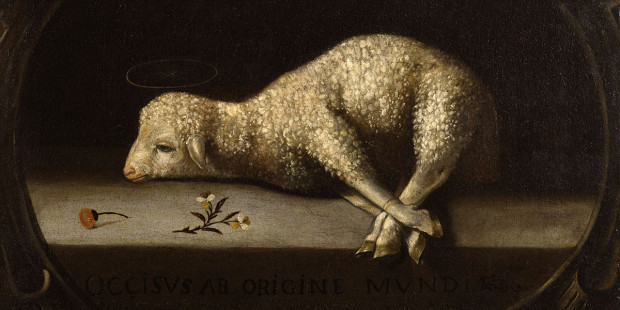Lenten Campaign 2025
This content is free of charge, as are all our articles.
Support us with a donation that is tax-deductible and enable us to continue to reach millions of readers.
There is something disturbingly innocuous—almost sterile—in current Eucharistic celebration. Perhaps it is the ethereally thin, nearly transparent character of the wafer, perhaps too much focus on Christ’s “real presence” in the object received, perhaps the social structures that appear to make our Eucharistic celebrations too nearly a celebration of our particular social class and location.And perhaps I am misreading all of this. In any case, it seems important to recall that when we hold the Eucharist, we hold a grenade: pin pulled.
The New Testament origins of the Eucharistic sacrifice lie in the upper room of the Last Supper, Jesus’s final meal, as it were, with his intimates before his eventual crucifixion. The highways and by-ways of the road from Last Supper to Eucharistic celebration cannot detain us here. Instead, we can try to restore focus to some of the dynamic and dramatic elements and allusions of this meal.
The Last Supper formally begins the Passion narratives of Mark, Matthew and Luke. By this time, Jesus knows he will be betrayed and the authorities will come for him. The atmosphere is tense. The apostles, recall, do not want to hear of a suffering messiah, but only a royal one from whom they are sure to benefit. During the Last Supper, however, Jesus anticipates his passion (Lk. 22:15): his blood will be poured out (Lk. 22:20), his body broken (Lk. 22:19) to establish a new covenant promised earlier by Jeremiah (Jer. 31:31-33). The theological setting of a Passover meal extends back further to recall Israel’s liberation and exodus from Egyptian slavery towards the land of the promise. In the present, Jesus gives thanks over the cup and the bread fully in line with Jewish practice at Passover, a remembrance that inscribes contemporary Jews into the ongoing story of Covenant with God. The context of this prayer of thanksgiving, however, is jarring: Jesus now associates cup and bread with his coming death and yet still gives thanks. There is nothing in the text to suggest irony here, yet to give thanks in anticipation of his Passion is no small thing. This is not all.
The Last Supper recalls Israel’s exodus, God’s sustaining food (manna) in the wilderness and Jeremiah’s promise of a new covenant written on hearts, and anticipates his passion and death, yet also points towards another, future meal, the heavenly banquet: “For I tell you I shall not drink from the yield of the wine from now until the Kingdom of God comes,” Lk. 22:18; cf. Lk. 22:16).This double reference to the Kingdom joins the central concern of Jesus’s preaching to Eucharist. To recall: God’s kingdom blesses the poor and those persecuted for righteousness’ sake, heals the sick, restores the despised and those cast outside the life-giving community to full communion, extends mercy, forgiveness and consolation. The poor receive a place at the banquet and, according to James (2: 1-9), a place of honor. This vision of the Kingdom, especially in light of Matthew 25: 31-46, where judgment on the nations takes place on the basis of who did and who did not help Christ, present in the faces of those in need, suggests a prophetic critique of both present culture and Churches that too often mirror it.Eucharist sticks in the throat because it has barbs.
Perhaps at this point “real presence” gains more grip and greater density. As clear from the Mass, where all is drawn forward by and towards communion, the Eucharistic sacrifice is not something other than the real presence of all Christ is in the work of salvation, from creation through covenant, the Cross and Resurrection. Rather, Eucharistic sacrifice—as Christ’s total self-offering to the Father for us—continues his mission in the Spirit for his Body. He does not cease giving himself—cease being Love—in the 1st century. Rather, he gives nothing less than himself and gives all of himself.
The Eucharist, of course, is no spectator sport. We have observed that the Eucharist is continuous with Christ’s self-giving love for the world in the events of salvation and especially the Incarnation and Cross. We must now seek to take up our role in all of this—for, as anyone tapped by an usher at Mass knows, we also offer gifts for the altar and take our role as a royal priesthood (1 Peter 2: 1-10; L.G. 10). Indeed, Christ’s action, and the gift of his Spirit, makes possible our participation in his mission from the Father, and thus our offering in his own. Eucharist too, then, is an exodus, from sin to new life, from an enclosed existence in self-secure autonomy to service for the world, especially to those who find special blessing in his kingdom.

